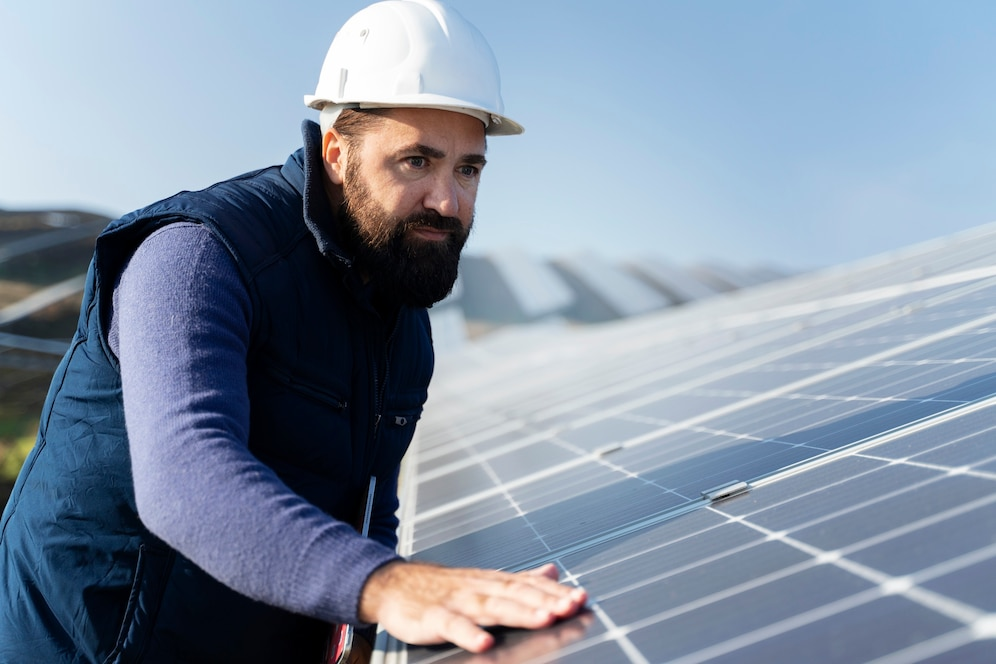Solar panels, a beacon of sustainable energy, offer a promising solution to our growing energy needs. By converting sunlight into electricity, these panels not only reduce reliance on fossil fuels but also contribute to a greener planet. However, successful solar panel installation requires careful planning and execution. Let’s delve into the key factors to consider:
Ideal Location for Solar Panel Installation
- Maximum Sunlight Exposure: The most crucial factor is the amount of direct sunlight the panels receive. Rooftops, especially those facing south (in the Northern Hemisphere), are ideal due to their optimal sun exposure.
- Roof Orientation and Tilt: The angle of your roof significantly impacts solar panel efficiency. A tilt angle of around 20-30 degrees is generally considered optimal.
- Shade-Free Zones: Ensure that trees, buildings, or other obstructions do not cast shadows on the panels, as this can reduce their output.
DIY Solar Panel Installation: A Do-It-Yourself Approach
While DIY solar panel installation can be rewarding, it requires technical expertise and careful planning. If you’re confident in your abilities, consider the following steps:
- Planning and Permitting:
- Assess your energy needs and determine the appropriate panel size.
- Obtain necessary permits from local authorities.
- Roof Inspection and Preparation:
- Ensure your roof is structurally sound and can support the weight of the solar panels.
- Clean the roof to remove debris and obstructions.
- Mounting the Racking System:
- Install a sturdy racking system to hold the solar panels securely.
- Level the racks to ensure optimal panel orientation.
- Wiring and Electrical Connections:
- Connect the solar panels to inverters, which convert DC power to AC power.
- Wire the system to your home’s electrical panel.
- Testing and Monitoring:
- Test the system to ensure it’s functioning correctly.
- Use monitoring tools to track energy production and identify potential issues.
Professional Solar Panel Installation
For most homeowners, hiring a professional solar installation company is the recommended approach. These experts have the knowledge, experience, and tools to ensure a seamless and efficient installation.
Key Considerations When Choosing a Solar Installer:
- Experience and Reputation: Look for a company with a proven track record and positive reviews.
- Certifications and Licenses: Ensure the company and its installers are certified and licensed.
- Warranty and Maintenance: A good installer offers comprehensive warranties on both equipment and labor.
- Financing Options: Explore various financing options, such as leasing or purchasing, to suit your budget.
Common Mistakes to Avoid:
- Underestimating System Size: Calculate your energy needs accurately to avoid undersizing your system.
- Neglecting Roof Condition: A damaged roof can compromise the performance of solar panels.
- Ignoring Local Regulations: Familiarize yourself with local building codes and zoning regulations.
- DIY Without Expertise: If you’re not confident in your DIY skills, hire a professional to avoid potential issues.
By carefully considering these factors, you can maximize the benefits of solar energy and contribute to a sustainable future.

